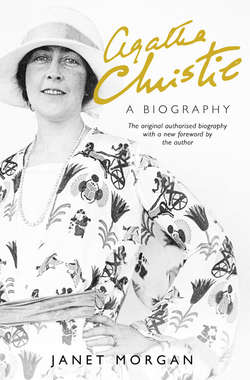Читать книгу Agatha Christie: A Biography - Janet Morgan - Страница 15
8 ‘1st Class! Good oh! Right here’
ОглавлениеThe Empire Tour was, in retrospect, richly comic. It was not so much that the Empire itself was entertaining, though the places to which Agatha was conveyed were certainly outlandish and exotic and the methods of transportation various and unpredictable, as that the inhabitants of the Empire were wonderful to behold. Their appearance and manners were bizarre, they were perfectly unselfconscious, and all a little larger than life – not just the people Agatha and her companions met on their travels but also the members of the Empire Expedition itself. Its style was set by its central figure: Major E. A. Belcher. Had Major Belcher been a less colourful character, less a caricature of himself, the Expedition might have been more humdrum, even-tempered, less prone, perhaps, to catastrophe and unexpected changes of plan. But with Belcher at the helm, gloriously temperamental, marvellously disorganised, extravagant in his demands, everyone and everything associated with him became more violent in temper, more extreme in behaviour, more exaggerated in attitude. Belcher brought out the worst in nature and in people – and the best in Agatha’s writing. The account of the tour in her Autobiography is fluent and funny but it is not half as hilarious as the diary she kept, the sequence of letters she sent her family, and the two large albums of photographs and souvenirs she assembled when, at last, she and Archie escaped from Belcher’s clutches.
Major Belcher had been a master at Clifton, where he had conceived a liking for Archie, whose efficiency he came to respect and for whose wife he now felt affection, not least because she listened while he talked. His genius appears to have lain in successfully persuading people to appoint him to positions of authority, where a flair for organisation was required. During the Great War, for instance, he had first invented and then accepted the post of Controller of Supplies of Potatoes; as Agatha wrote later, the production and distribution of potatoes was fraught with complication: ‘At the hospital, I know, we never had them. Whether the shortage was entirely due to Belcher’s control of them I don’t know, but I should not be surprised to hear it.’ For Belcher was in fact unimaginably inefficient, his true bent being for what is nowadays called ‘public relations’. He was very good at self-promotion; as he had said of the potato job, ‘I didn’t know a thing. But I wasn’t going to let on. I mean, you can do anything – you’ve only got to get a second-in-command who knows a bit about it, and read it up a bit, and there you are!’ He would volunteer, full of self-importance and high expectations as to salary and conditions, for one undertaking after another where there were bound to be difficulties and disagreements. The Empire Exhibition was one of these.
It was to be held in London in 1924 as a showcase for the products of the British Empire, rather as the Great Exhibition in 1851 had been. Belcher had been appointed Assistant General Manager and invited (probably at his own suggestion) to lead a Mission to the Dominions – Australia, New Zealand, Canada and parts of South Africa – to drum up interest among the political and business leaders of the various provinces and territories. The Expedition would take nine or ten months, the costs of railway and steamship travel being met by the countries the Mission was to visit. Belcher now asked Archie to join the team as Financial Adviser: ‘You were Head of the School at Clifton, you’ve had all this experience in the City. You’re just the man I want.’ Archie’s expenses would be paid and he would receive a fee of £1,000. If Agatha were to come, her travelling expenses would be covered and Archie’s fee would just take care of her part of the hotel bills and the cost of a month’s holiday in Honolulu for the two of them.
